Camp Gordon Johnston salutes ‘greatest generation’
They had all just been small-town boys growing up in Carrabelle, born either just before or not long after World War II, and when it came time to answer their nation’s call, fresh out of high school, they did so.
Their fight was a far less popular war than the one of their fathers, and all three managed to survive a conflict in Southeast Asia that cost the lives of as many as 2 million civilians on both sides; 1.1 million North Vietnamese and Viet Cong fighters; 250,000 South Vietnamese soldiers; and more than 58,000 American lives.
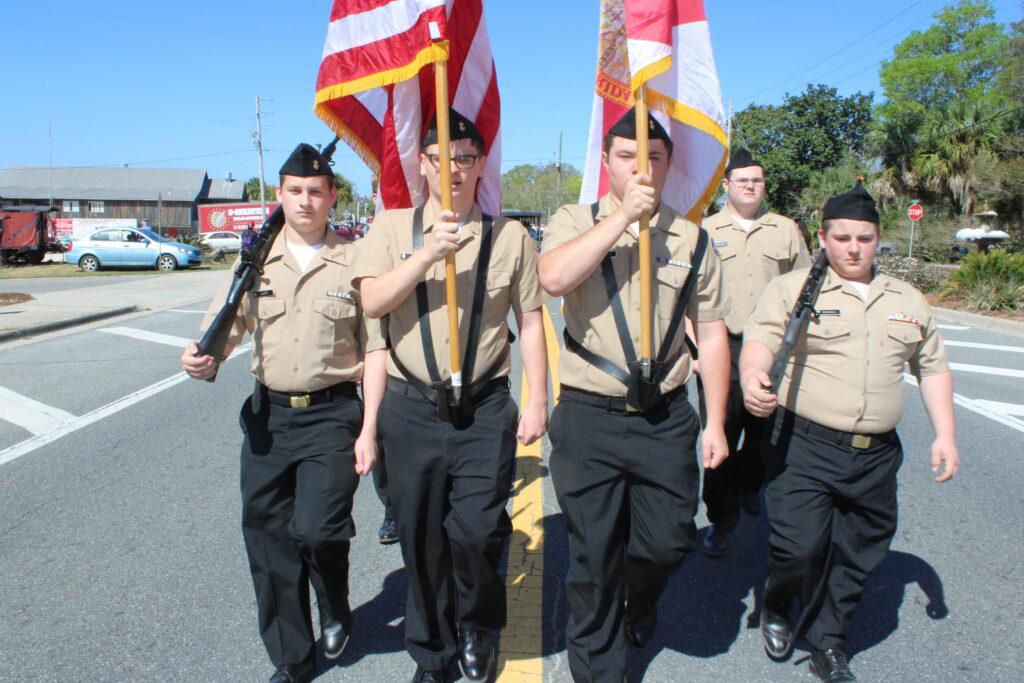
Included in those U.S. casualties was an assistant football coach at Carrabelle High School, as well as one of these men’s classmates, Robert Clifford “Cliff” Millender, who was killed at age 22 in a rice patty, and whose name new graces the memorial highway along which the 28th annual Camp Gordon Johnston Day Veterans Parade marched Saturday.
Gathered to watch the parade was Harry Gray and Henry Lowery, who had both played football at Carrabelle in the early 1960s, and Hunter Page, a generation older, who had graduated CHS in 1956 before going on to a 31-year career in the Army, including service as an officer with the general staff in Saigon.
In Lowery’s case, he had been the first African-American graduate of Carrabelle High School, in 1967, a year before it was formally integrated, and after that he had enlisted in the Marines and was soon sent over to Southeast Asia.
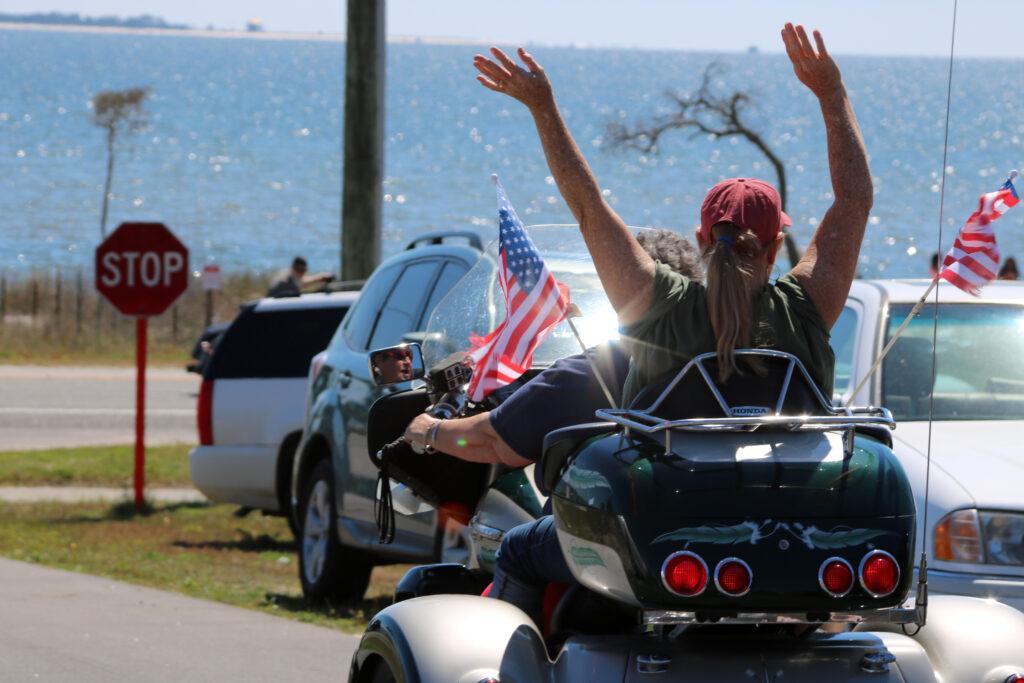
There he worked as a “tunnel rat,” clearing out the enemy’s hiding places, and was in Hue City when the Tet Offensive came down in 1968.
He would return from Vietnam and embark on a 34-year career in the Marines, including serving as a drill instructor for non-commissioned officers, as well as missions to the Mediterranean around the time of the Yom Kippur War. Among the most memorable moments of his service was chatting aboard a plane with Pres. Ronald Reagan.
Now looking in his 70s as fit as his playing days at Carrabelle, he remains active with the American Legion in Tallahassee.
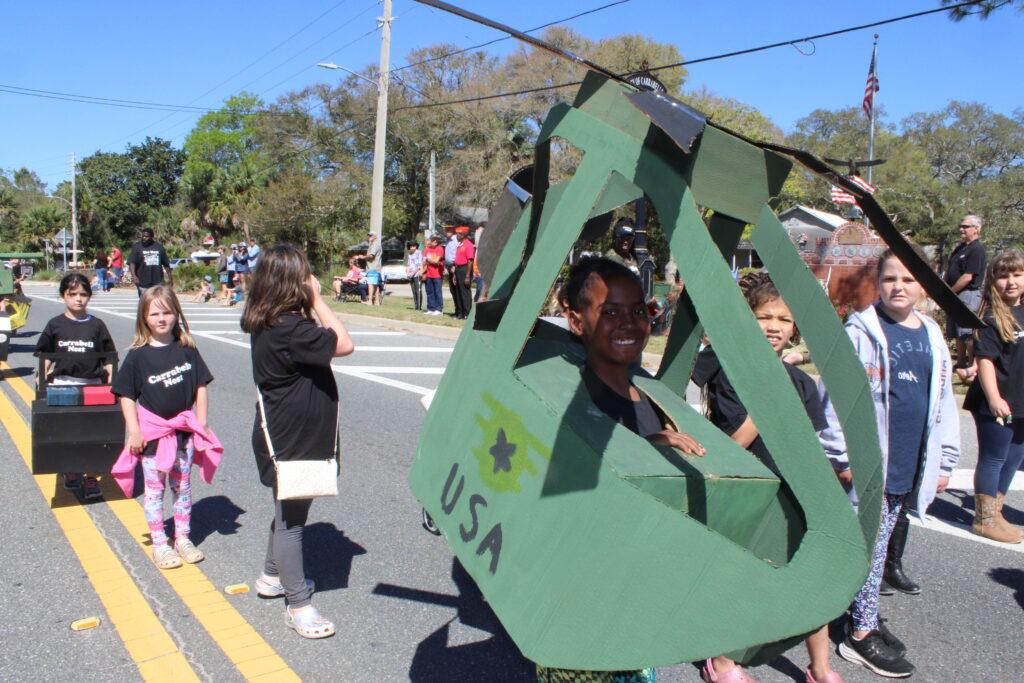
His friend Harry Gray, a year younger, was on hand as well, and recalled his days as a helicopter crew chief with the Army in Vietnam. After coming back to America in April 1970, Gray decided to embark on a business career, as a home builder.
He looks back on those days with a firm belief rooted not in the glorification of war, but in the sober recognition that the slaughter of the enemy is a heartless thing, that has preyed on both the bodies and souls of patriotic American soldiers, and that far too many young men died due to a lack of training by the military and by reckless decisions made by their superiors.
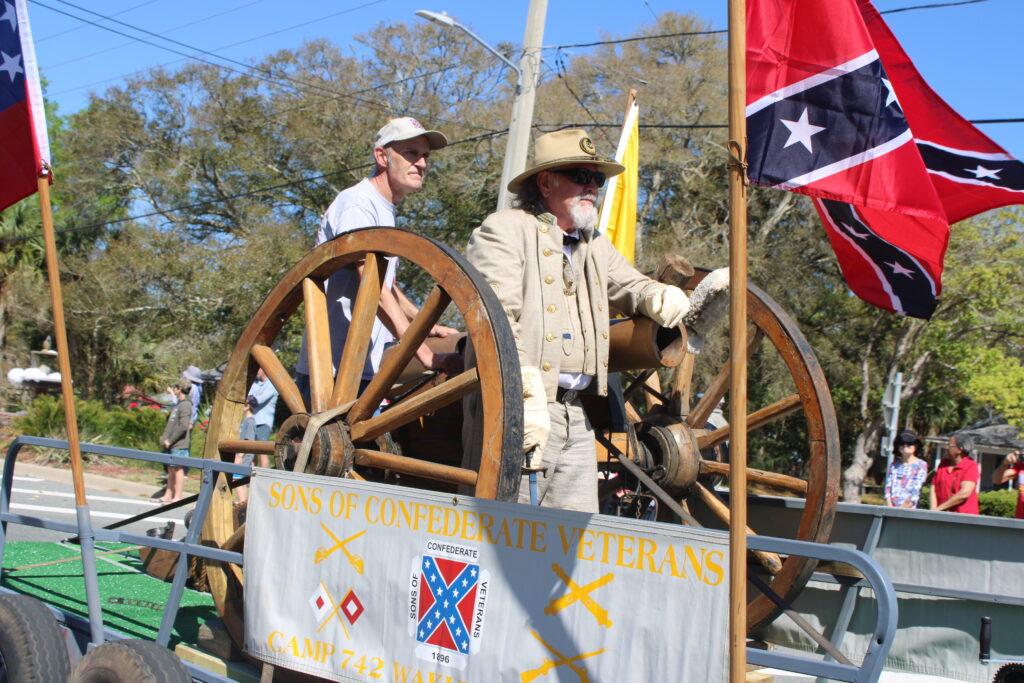
The parade was hugely well-attended, and while grand marshal Bob Dietz was among the scant few members of the “greatest generation” to take part, the celebration of the service, especially of those trained at Camp Gordon Johnston for amphibious landings in Europe and the Pacific, was enthusiastic.
All the constitutional officers were on hand, with four county commissioners riding together and even members of the Apalachicola city commission taking part.
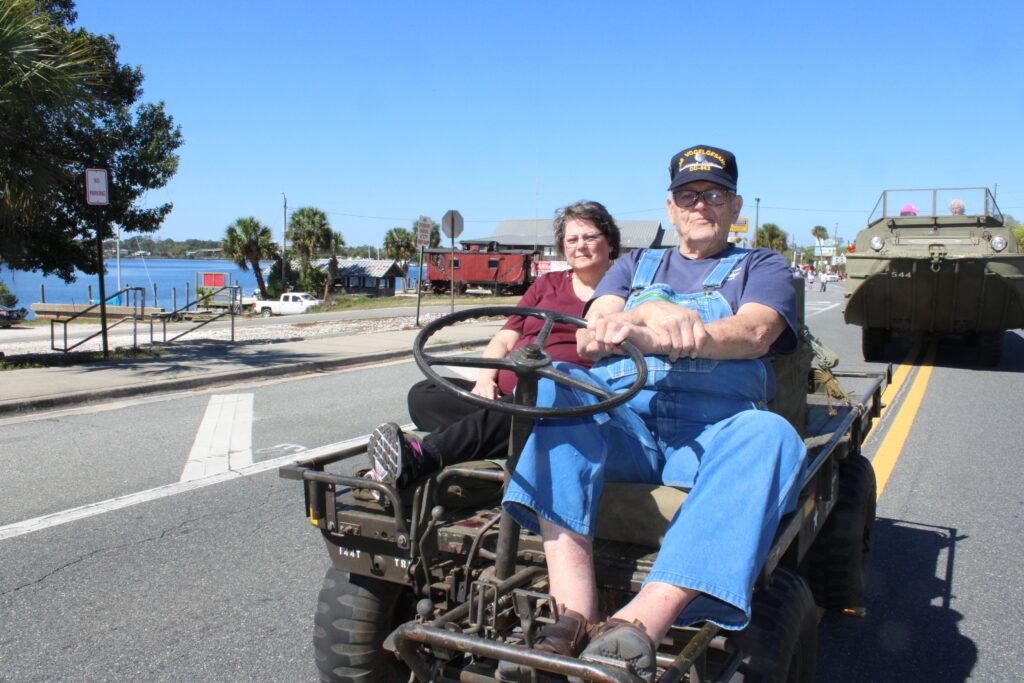
The military hardware was on full display and the candy was tossed lavishly from the floats.
Some even landed at the feet of Gray, Lowery and Page, as the three Vietnam vets watched from the sidelines.
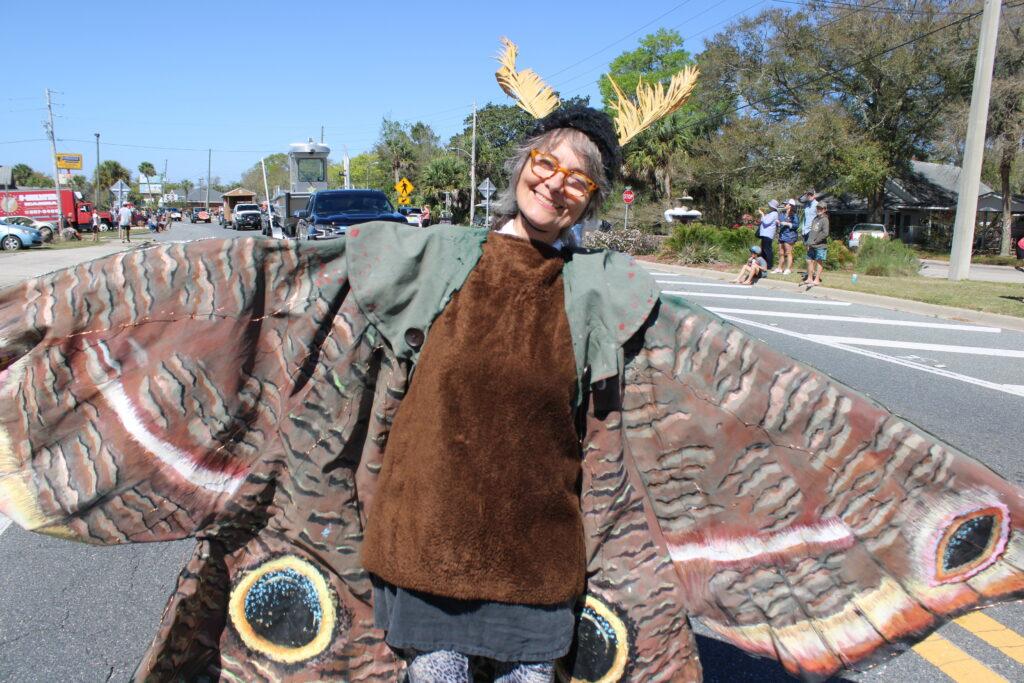

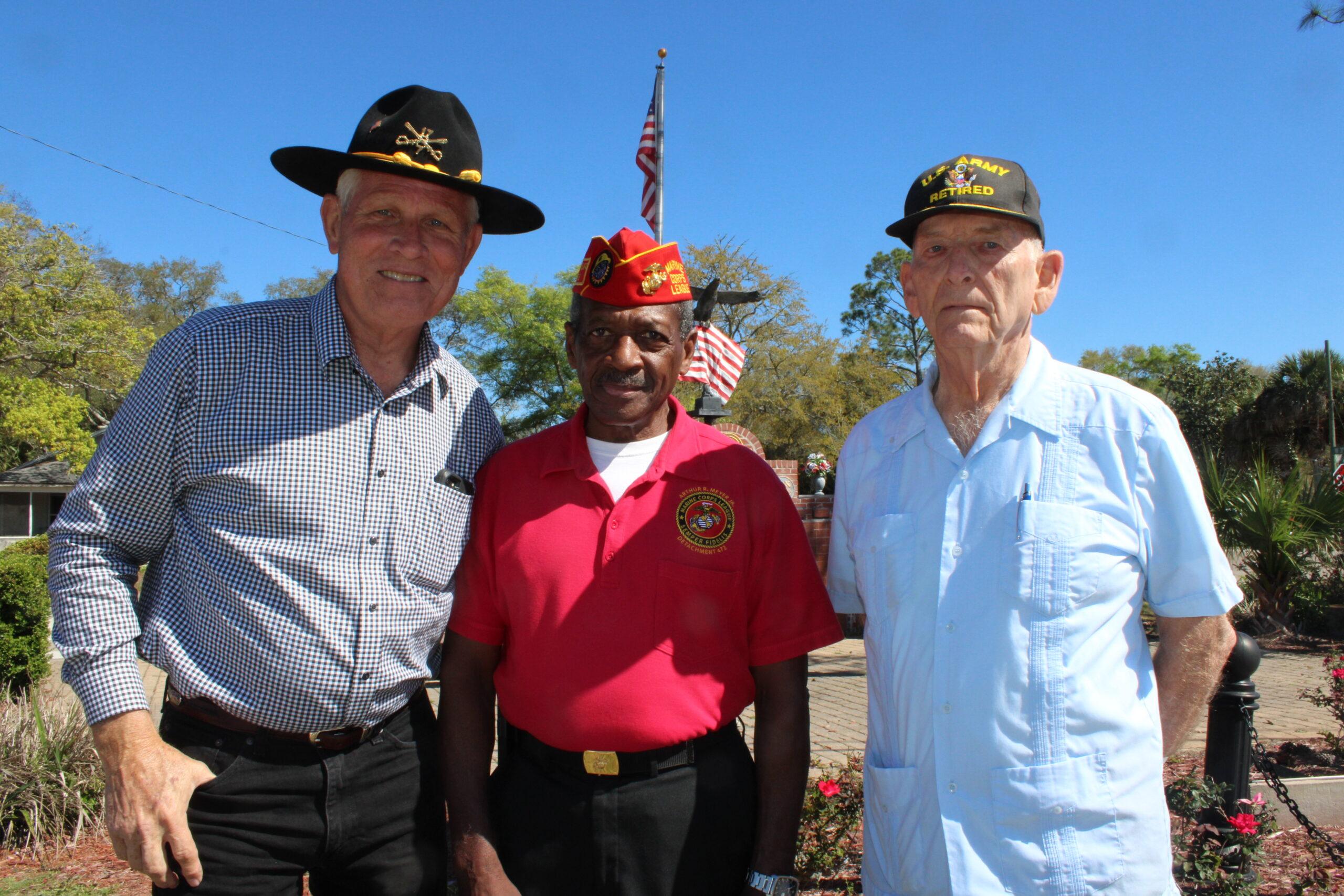
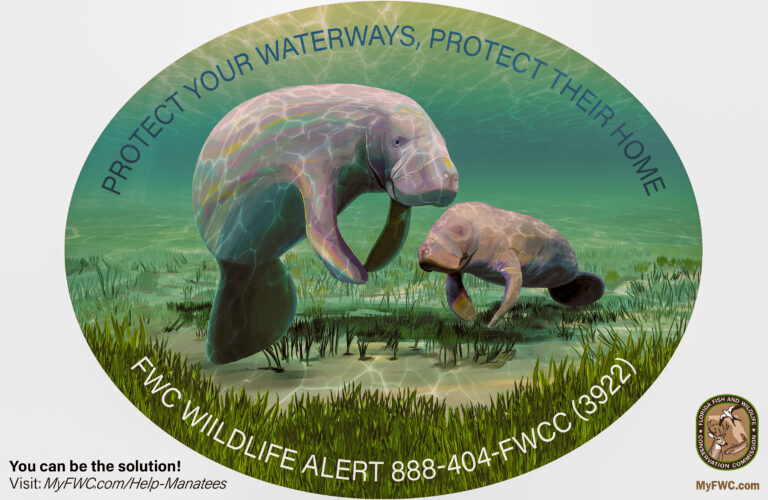
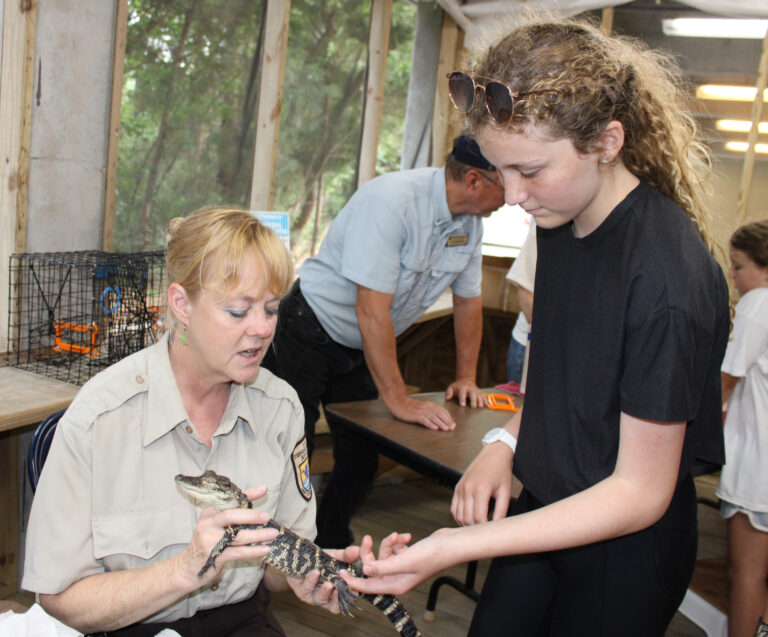
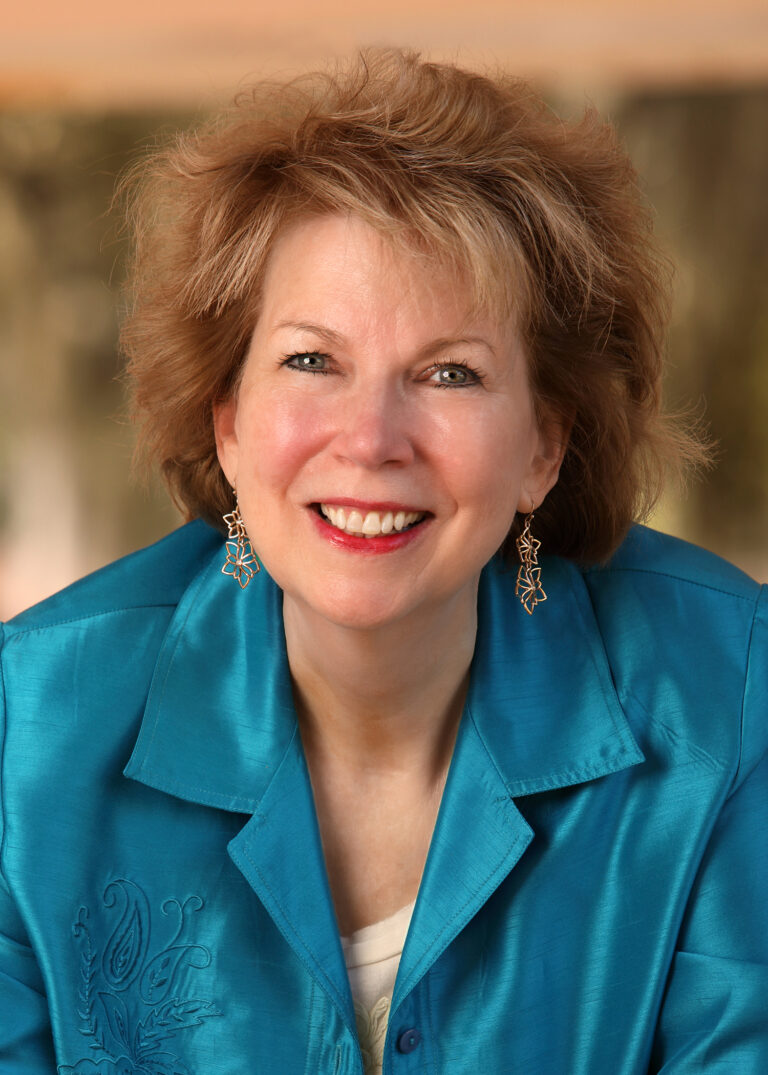
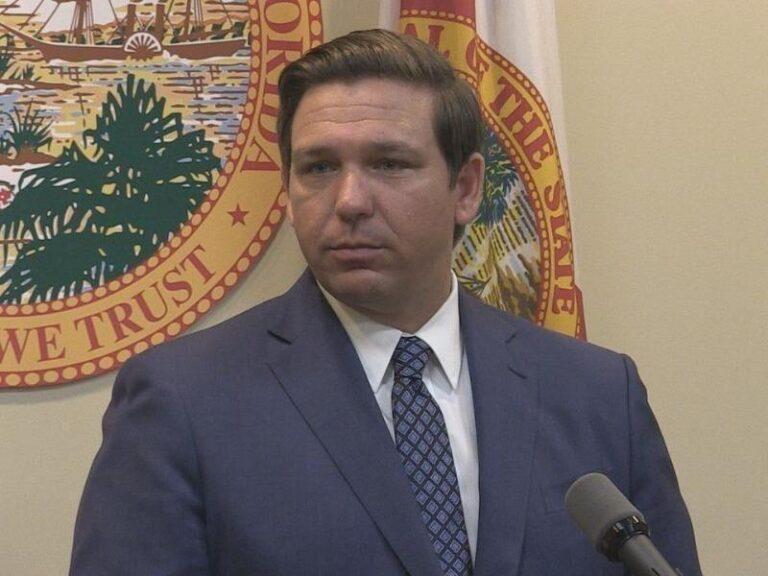
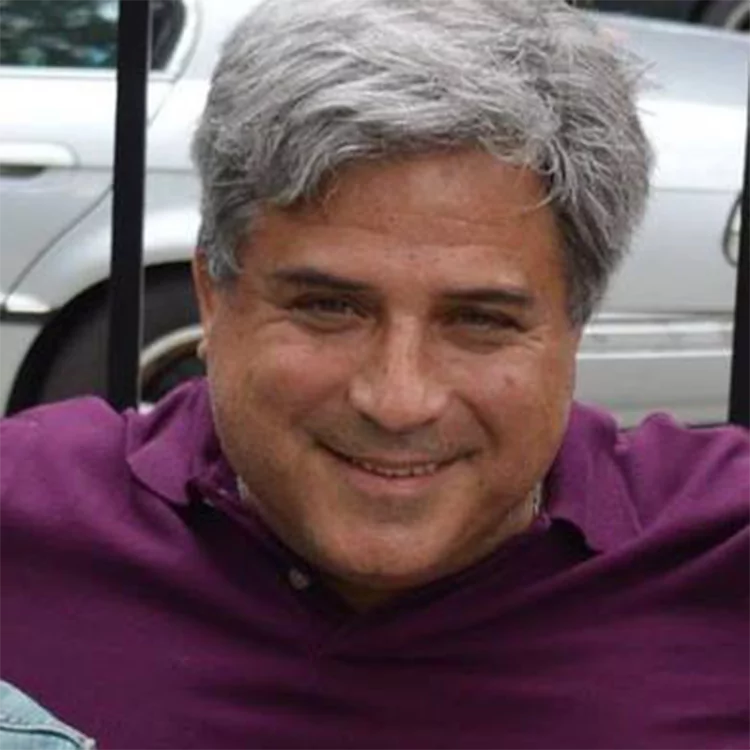
My mother, Lt. Theresa Eunice Warren, an Apalachicola native, with my father, Lt Col George Ruffin Benton jr., her to be husband, landed with the invasion troops in Normandy. She trained at Camp Gordon Johnson. Spring cleaning of the attic last week turned up an unopened box with many of her small things. But, they were not small things at all. They included a ribbon with four battle stars, and the invasion arrowhead. Our people were selfless then, as were the gentlemen who served in Vietnam. We were, and still are, Americans. My hope and belief is that the greatest generation will come again. Selfless, generous, kind, and grateful. We are America…… still.
G Ruffin Benton III MD
Brevard NC